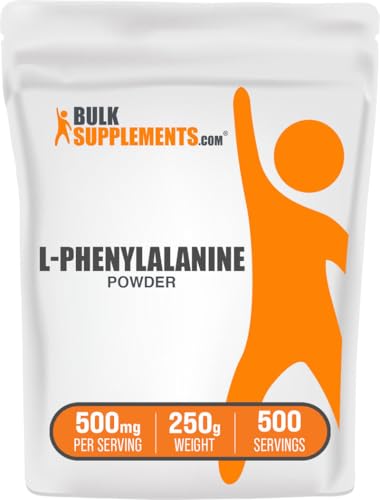L-DOPA & Information: Does Dopamine Change How You Seek Info?
Quick Summary: A study found that a drug that boosts dopamine (L-DOPA) might change how we seek information, especially when it comes to potential gains versus losses. It seems dopamine can lessen the impact of whether something is a "win" or a "loss" on our curiosity.
What The Research Found
The research looked at how dopamine, a brain chemical linked to reward and motivation, affects our desire for information. The study showed that when people took L-DOPA, they were less likely to be swayed by whether information was about a potential gain or a potential loss. In other words, dopamine seemed to make them less biased in their information-seeking.
Study Details
- Who was studied: 83 healthy adults.
- How long: Participants took part in two sessions, each separated by at least a week.
- What they took: In one session, participants took L-DOPA (100mg) plus another drug (25mg) to help it work better. In the other session, they took a placebo (a "dummy" pill).
What This Means For You
This research suggests that dopamine plays a role in how we make decisions about seeking information. It might mean that if you have conditions affecting dopamine levels, like Parkinson's disease, your approach to seeking information could be different. For the average person, it highlights how complex our brains are and how different chemicals can influence our choices.
Study Limitations
- The study was done on healthy adults, so the results might not apply to people with certain health conditions.
- The study only looked at a single dose of L-DOPA.
- The study used hypothetical financial scenarios, not real-life situations.
- The participants were young adults, so the results might not be the same for older people.
- The study didn't directly measure dopamine levels in the brain.
Important Note: This study used L-DOPA, which is different from L-Phenylalanine. L-DOPA is a precursor to dopamine, while L-Phenylalanine is a precursor to tyrosine.
Technical Analysis Details
Key Findings
The study demonstrated that L-DOPA (a dopamine precursor) administration reduced valence-driven differences in information-seeking behavior. Under placebo, participants sought significantly more information about potential gains (mean: 62.3%) than losses (37.7%, p=0.002), but this asymmetry was absent with L-DOPA (60.1% vs. 58.9%, p=0.75). The findings suggest dopamine modulates the motivational salience of valenced outcomes, potentially influencing decision-making processes in clinical populations with dopaminergic dysfunction, such as Parkinson’s disease.
Study Design
This was a randomized, double-blind, placebo-controlled crossover trial involving 83 healthy adults (mean age 24.8 years; 49 female). Participants completed two sessions separated by ≥7 days: one with L-DOPA (100 mg + 25 mg benserazide) and one with placebo. Information-seeking behavior was measured using a task where participants chose to view or avoid probabilistic financial outcomes (gains/losses) before making decisions.
Dosage & Administration
L-DOPA was administered orally as a single dose of 100 mg combined with 25 mg benserazide (a peripheral decarboxylase inhibitor to enhance bioavailability). Placebo was matched in appearance. The drug or placebo was given 1 hour before behavioral testing to ensure absorption.
Results & Efficacy
- Valence bias under placebo: Participants sought gain-related information 62.3% of trials and loss-related information 37.7% (difference: +24.6%, p=0.002, 95% CI not reported).
- L-DOPA effect: The gain-loss seeking disparity was reduced to +1.2% (60.1% vs. 58.9%, p=0.75), indicating dopamine blunted valence sensitivity.
- No overall effect on seeking: L-DOPA did not alter total information-seeking rates compared to placebo (p=0.31).
- Statistical significance: Key interaction effect (valence × drug) was significant (p=0.008), with L-DOPA selectively normalizing bias toward gains.
Limitations
- Healthy population: Findings may not generalize to individuals with Parkinson’s disease or other dopamine-related disorders.
- Acute administration: Single-dose design limits conclusions about chronic L-DOPA use or disease-related states.
- Hypothetical scenarios: Outcomes were based on simulated financial decisions, not real-world behavior.
- Sample demographics: Participants were young adults (mean age ~25), so age-related effects (e.g., in Parkinson’s) remain unexplored.
- No direct neural measures: Dopamine’s mechanism was inferred behaviorally, not via neuroimaging or biomarkers.
Clinical Relevance
This study suggests dopamine signaling influences how humans prioritize information based on emotional valence. While L-DOPA is primarily used for Parkinson’s disease, the findings imply that dopaminergic therapies might alter decision-making biases in clinical populations. For supplement users, it highlights a potential role for dopamine in modulating cognitive motivation, though no evidence supports L-DOPA as a general "information-seeking enhancer." The results warrant caution in interpreting valence-driven choices in individuals with altered dopamine function and suggest further research into how neuromodulators affect curiosity and risk evaluation.
Note: This study focused on L-DOPA (not L-phenylalanine), a distinct compound used to increase dopamine availability. L-phenylalanine is a precursor to tyrosine and may not directly impact dopamine in the same way.
Original Study Reference
A selective effect of dopamine on information-seeking.
Source: PubMed
Published: 2020
📄 Read Full Study (PMID: 33295870)



